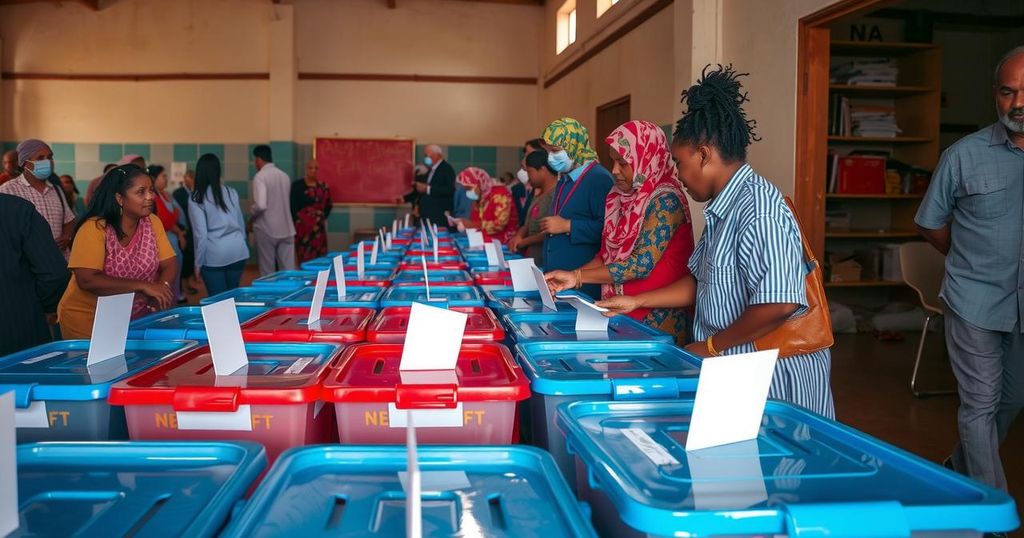Voting Underway in Chad’s Controversial Parliamentary Election
Chad is conducting its first parliamentary election in 13 years amid a boycott by opposition parties. Low voter turnout is reported, attributed to weather conditions, but opposition claims suggest pre-determined results. President Mahamat Idriss Deby, seeking to consolidate power, faces skepticism over the electoral process amidst challenges from Boko Haram and calls for an end to military rule.
Voting is currently ongoing in Chad’s first parliamentary election in over a decade, a significant step touted by the government towards concluding military rule. Voters are tasked with electing a new parliament, provincial assemblies, and local councils in a country grappling with severe poverty. However, opposition parties have initiated a boycott, leading to low turnout, particularly in the capital, N’Djamena. Election officials attributed the apathy in voter turnout to unfavorable weather conditions, yet opposition figures claim the election results were pre-determined.
President Mahamat Idriss Deby Itno, who assumed leadership through military means in 2021, faces a potentially unchallenged election due to the boycott’s impact. Despite his calls to the public to participate, opposition figures have voiced skepticism, alleging that the electoral process is rigged. Candidates aligned with the current government are expected to dominate the results, as the opposition’s calls for a more equitable democratic process have largely gone unheeded.
The elections occur amidst a backdrop of heightened insecurity from Boko Haram attacks and geopolitical tensions linked to France and Sudan. Deby’s government has framed these elections as a pivotal moment in the transition to democracy, following his father’s longstanding rule of thirty years until his death. Polling stations will continue to operate until the evening, monitored by international observers who aim to ensure transparency despite opposition claims of fraud.
Chad, a Sahelian country classified as one of the poorest globally, has undergone significant political instability since the death of former President Idriss Déby Itno in 2021. His son, Mahamat Idriss Déby, took power amid military rulership, presenting parliamentary elections as a crucial progression towards a democratic framework. However, marked by opposition resistance and calls for boycotts, this election is pivotal in determining the direction of Chad’s governance and the nature of its democracy moving forward.
In summary, Chad’s parliamentary election is indicative of its tumultuous political landscape, with the current government poised to secure uncontested victories due to the opposition’s boycott. The perception of predetermined electoral outcomes raises concerns about democratic integrity in the nation. With international observers monitoring the situation, the future of Chad’s political development remains uncertain as the nation wrestles with significant sociopolitical challenges and calls for reform. 2023 signifies a critical juncture in the quest for true democracy.
Original Source: www.aljazeera.com




Post Comment